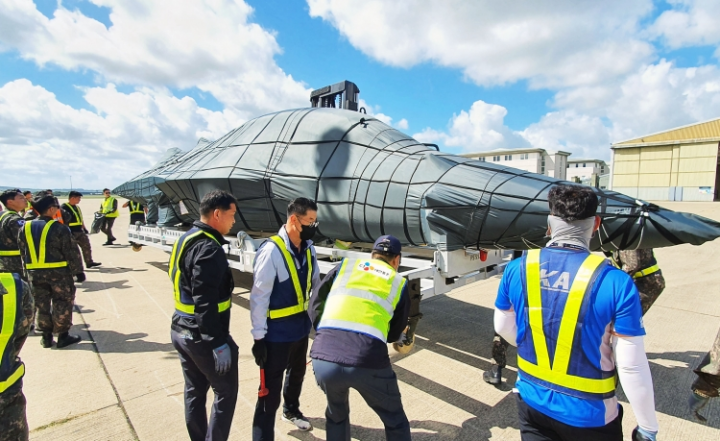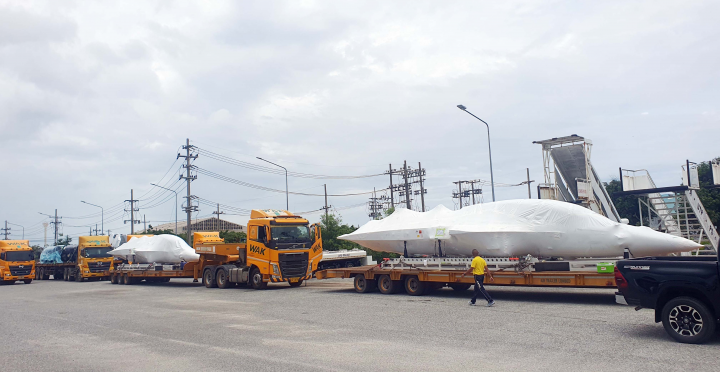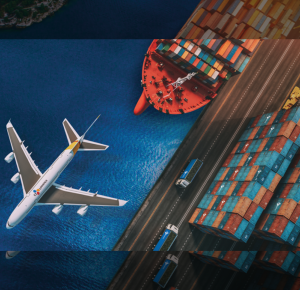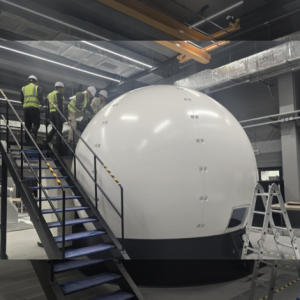Delivering precision in South Korea’s defense logistics

South Korea is rapidly emerging as one of the world’s leading arms and defense exporters. According to the Defense Acquisition Program Administration (DAPA), the country’s defense exports are projected to surpass 20 billion USD in 2024, reflecting a remarkable 42% year-on-year growth. Over the past four years, these exports have achieved a compound annual growth rate of over 60%. From its early days as a components exporter in the late 2000s, South Korea has evolved into a supplier of finished defense products, aiming to position itself as one of the top four arms exporters globally by 2027.
CJ Logistics, South Korea’s largest logistics company, is central to this growth. As the country’s defense exports continue to expand, CJ Logistics plays an increasingly critical role as a key logistics partner. But why is the logistics sector critical to South Korea’s rise in the defense export market? And how does logistics influence the world of arms and defense exports?
The Complexity of Defense Logistics
Ensuring safe and timely transportation of arms and defense equipment requires advanced logistics knowledge. Even minor product defects caused during transportation can lead to malfunctions, potentially jeopardizing national security. For this reason, the logistics process must be flawless.
Lead time is equally critical in defense exports. Meeting delivery deadlines is essential, as timely delivery directly influences the trust and relationships between the exporter and the importer.
Another significant issue in defense logistics is the need to disassemble and reassemble complex components for transport. Military aircraft, such as jets and fighter planes, can be flown to recipient countries with mid-flight refueling stops. While feasible, this approach poses considerable risks, including the need for route permissions and the managing of potential operational issues during transit. To mitigate these challenges, the preferred approach is to disassemble the aircraft safely, transport the components, and reassemble them upon arrival.
Given the highly specialized nature of arms and defense exports, only logistics providers with advanced project logistics and freight forwarding expertise can handle such projects. CJ Logistics utilizes cutting-edge technology and tools to meet these demands and ensure sensitive cargo’s safe and efficient transport. Features such as vibration-free trailers to prevent physical damage during land transport, waterproof shields to protect against rain and corrosion, and elastic belts to stabilize air cargo during turbulence demonstrate CJ Logistics’ commitment to exceptional defense logistics.

CJ Logistics: A Trusted Partner in Defense Logistics
One of CJ Logistics’ most recent projects involved transporting two T-50TH fighter jets manufactured by Korea Aerospace Industries (KAI) to Thailand in October 2024. This project included disassembling key components, domestic land and air transport, unloading, and reassembly upon arrival. CJ Logistics also facilitated the shipment of 12 FA-50GF aircraft to Poland in 2023 and transported nine Black Eagles T-50B aerobatic aircraft to the Royal International Air Tattoo (RIAT) in the U.K. in 2022, demonstrating its expertise in handling advanced aerospace logistics.
CJ Logistics’ secure and efficient logistics services have played a key role in the growth and global expansion of South Korea’s defense exports. As South Korea continues to emerge as a leading force in the global defense industry, CJ Logistics will continue to provide the secure and reliable transportation solutions essential for the success of the country’s defense sector.
Looking ahead, CJ Logistics is poised to support larger-scale projects, leveraging technological advancements and a commitment to excellence. With these capabilities, the company is prepared to meet the increasing demands of South Korea’s defense exports and contribute to the nation’s goal of becoming the world’s fourth-largest defense exporter by 2027.











